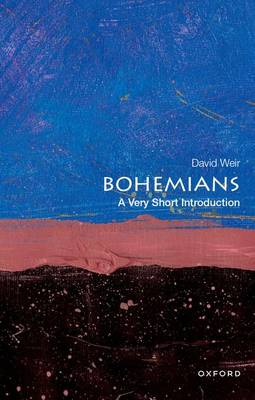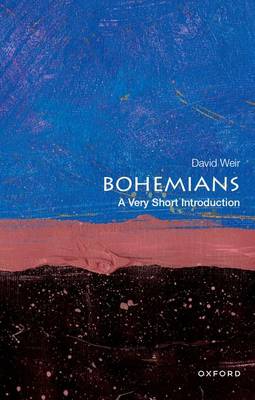
Vous voulez être sûr que vos cadeaux seront sous le sapin de Noël à temps? Nos magasins vous accueillent à bras ouverts. La plupart de nos magasins sont ouverts également les dimanches, vous pouvez vérifier les heures d'ouvertures sur notre site.
- Retrait gratuit dans votre magasin Club
- 7.000.000 titres dans notre catalogue
- Payer en toute sécurité
- Toujours un magasin près de chez vous
Vous voulez être sûr que vos cadeaux seront sous le sapin de Noël à temps? Nos magasins vous accueillent à bras ouverts. La plupart de nos magasins sont ouverts également les dimanches, vous pouvez vérifier les heures d'ouvertures sur notre site.
- Retrait gratuit dans votre magasin Club
- 7.000.0000 titres dans notre catalogue
- Payer en toute sécurité
- Toujours un magasin près de chez vous
12,95 €
+ 25 points
Description
The Romantic myth of Bohemia originated in the early nineteenth century as a way of describing the new conditions faced by artists and writers when the previous system of aristocratic patronage collapsed in the wake of the Age of Revolution. Without the patron system, the artist was free to move around, to seek an audience wherever fortune beckoned. This marketing model likening the artist's vagabond career to the "gypsy" life helps to explain part of the bohemian myth, but not all of it. Most bohemians have scant interest in commercial gain and are not so itinerant after all, confining their movements to down-market urban neighbourhoods where the rent is cheap and the morals are loose. This Very Short Introduction traces the myth of Bohemia through its various fictional manifestations, from Henry Murger's novel Scenes of Bohemian Life (1851) and Giacomo Puccini's opera La Bohème (1896) to Aki Kaurismäki's film La vie de Bohème (1992), and Jonathan Larson's musical Rent (1996). It goes on to examine the history of different bohemian communities, including those in the Latin Quarter of Paris, the Schwabing section of Munich, and the Greenwich Village neighborhood of New York. David Weir also considers the politics of Bohemia and traces the careers of the artists Gustave Courbet and Pablo Picasso and the great chanteuses Yvette Guilbert, Fréhel, and Edith Piaf in the Montmartre neighborhood of Paris, where a rich tradition of popular culture indebted to Bohemia also developed. Weir concludes with a discussion of the legacy of Bohemia today as something outworn and dying, an exhausted tradition that somehow continues.
Spécifications
Parties prenantes
- Auteur(s) :
- Editeur:
Contenu
- Nombre de pages :
- 160
- Langue:
- Anglais
- Collection :
Caractéristiques
- EAN:
- 9780197538296
- Date de parution :
- 30-05-23
- Format:
- Livre broché
- Format numérique:
- Trade paperback (VS)
- Dimensions :
- 116 mm x 174 mm
- Poids :
- 131 g







